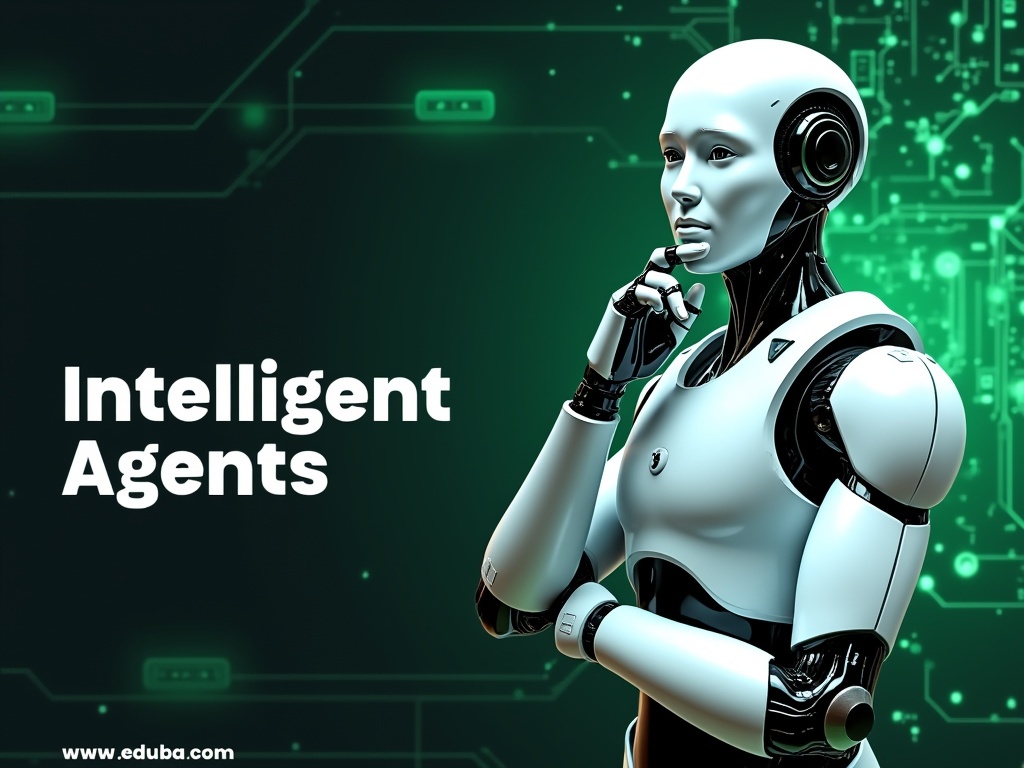
Intelligent Agents in AI: Understanding the Digital Decision-Makers
Artificial intelligence (AI) has revolutionized numerous industries, and at the heart of these innovations are intelligent agents. As the primary keyword indicates, intelligent agents are crucial digital decision-makers that function autonomously within AI systems. These software entities perceive their environment, take purposeful actions, and strive to achieve specific goals. From virtual assistants on our smartphones to autonomous vehicles on our roads, intelligent agents are integral to a wide range of applications. In this blog post, we’ll explore how these agents function and why they’re a cornerstone of AI technologies.
Estimated Reading Time
6 minutes
Key Takeaways
- Intelligent agents are central to the functioning of AI systems.
- They operate autonomously and adapt to changes in their environment.
- Their applications span numerous industries, enhancing efficiency and experience.
Table of Contents
- Understanding Intelligent Agents in AI
- How Intelligent Agents Work
- Examples of Intelligent Agents in AI
- AI Agents Explained
- Artificial Intelligence and Intelligent Agents: The Relationship
Understanding Intelligent Agents in AI
Intelligent agents in AI are designed to operate independently, making decisions and interacting with their environment. These agents consist of key components like sensors, a knowledge base, a reasoning engine, and actuators, which allow them to process data, store information, make informed choices, and perform actions. There are several variations of these agents:
- Simple Reflex Agents: These agents react instantaneously based on current perceptions.
- Model-based Reflex Agents: They maintain an internal state to keep track of changes in the world.
- Goal-based Agents: These agents focus their actions on achieving specific objectives.
- Utility-based Agents: They aim to maximize a utility function to select the best action.
- Learning Agents: Capable of improving their performance by learning from experience.
These different types of intelligent agents illustrate the diversity and adaptability found within AI applications. From responding to real-time data to strategizing long-term solutions, intelligent agents utilize a wide range of AI techniques, helping them grow more adept and versatile. For a deeper understanding, refer to AI Threat Detection: Revolutionizing Cybersecurity.
How Intelligent Agents Work
To appreciate the role of intelligent agents in AI, it’s essential to comprehend their operational mechanics. Intelligent agents function through a continuous cycle that includes:
- Perception: Collecting data from their environment through sensors.
- Reasoning: Analyzing this data to make informed decisions.
- Action: Executing decisions to influence the environment.
During this cycle, agents employ numerous AI techniques—ranging from machine learning to natural language processing and computer vision. This allows them to adjust to new situations, learn from experiences, and make complex decisions. These agents are also continually evolving, enhancing their ability to process ever-increasing data sets efficiently and accurately. For further insight, see AI Security Solutions: Enhancing Business Cybersecurity with Advanced Technologies.
Examples of Intelligent Agents in AI
Intelligent agents are not just theoretical figures but practical tools integrated into technologies we encounter daily. Here are some notable examples:
- Virtual Assistants: Siri or Alexa respond to human language and perform tasks.
- Autonomous Vehicles: Cars like those made by Tesla use intelligent agents to navigate through traffic.
- Recommendation Systems: Streaming services like Netflix use agents to suggest content based on user behavior.
- Chatbots: Software agents provide customer support by answering questions and resolving issues.
- Trading Algorithms: In financial markets, agents facilitate and optimize trading decisions.
These applications highlight the pervasive role of intelligent agents, enhancing user experience and improving operational efficiency across various sectors. More extensive examples can be reviewed in this source.
AI Agents Explained
AI agents are a specialized subset of intelligent agents with targeted functions designed for specific tasks or environments. These agents have highly focused capabilities and are tailored to address unique challenges:
- Network Security Agents: These monitor systems for threats and respond dynamically.
- Customer Service Agents: Handle inquiries efficiently, routing complex ones as needed.
- Robotic Process Automation (RPA) Agents: Streamline business processes by automating repetitive tasks.
AI agents demonstrate the blend of automation and specificity, optimizing processes and tackling specific problems effectively. Additional exploration of these can be found in AI Security Solutions.
Artificial Intelligence and Intelligent Agents: The Relationship
The relationship between AI and intelligent agents is symbiotic; intelligent agents embody the core principles of AI—perception, reasoning, and action—serving as practical implementations of AI theories. As technology progresses, these agents become increasingly sophisticated, handling more intricate tasks within more complex environments.
Key aspects of this relationship include:
- AI as a Framework: Provides the theoretical and technical foundation for developing intelligent agents.
- Intelligent Agents in Practice: Implement AI concepts in real-world applications, thus advancing technological capabilities.
As AI and intelligent agents evolve, they present greater autonomy and integration into our daily lives and business workflows. A comprehensive understanding of these digital decision-makers is crucial for leveraging AI’s potential. To grasp the full scope, consider reading through this detailed analysis.
Overall, intelligent agents in AI represent a rapidly advancing field with the potential to transform industries and everyday life. With continuous advancements in AI, these digital decision-makers are growing more capable, and their role is becoming increasingly critical. Exploring and understanding these agents is vital for anyone interested in the future of artificial intelligence and its applications.
